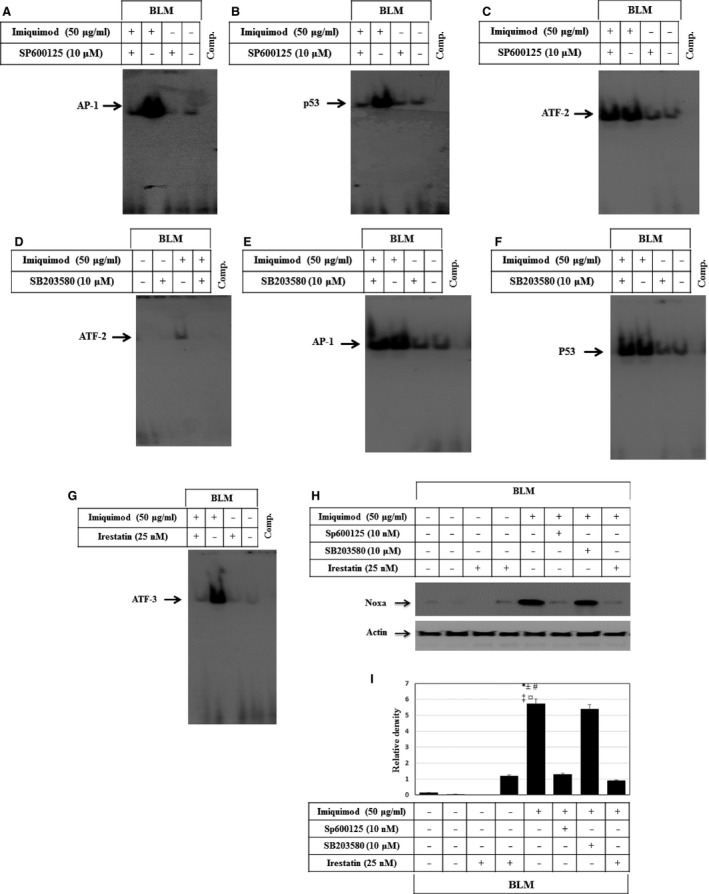Figure 6.

The activation of ASK1‐JNK and PERK‐IRE1α pathways are essential for the modulation of imiquimod‐induced expression of Noxa protein in melanoma cells. EMSA demonstrates that the pre‐treatment of melanoma cell line BLM with the inhibitor of JNK (SP600125) inhibits imiquimod‐ induced DNA‐binding activity of the transcription factors AP‐1 (A) and p53 (B), but not the induced DNA‐binding activity of the transcription factor ATF‐2 (C). Whereas, the pre‐treatment of the melanoma cell line BLM with the inhibitor of p38 (SB203580) inhibits imiquimod‐induced activity of the transcription factor ATF‐2 (D), but not those of the transcription factors AP‐1 (E) or p53 (F). (G) EMSA demonstrates the inhibition of imiquimod‐induced DNA‐binding activity of the transcription factor ATF‐3 in response to the pre‐treatment of the melanoma cell line BLM with the inhibitor of IRE1α (irestatin). (H) Western blot analysis demonstrates the inhibition of imiquimod‐induced expression of Noxa in response to the pre‐treatment of BLM cells with the inhibitor of JNK or IRE1α, but not by the inhibitor of p38. Actin is used as an internal control for loading and transfer. Data are representative of three independent experiments. (I) Analyses of band intensity on films are presented as the relative ratio of phospho‐IκBα, and expression of IκBα, XIAP to actin. Bars represent mean ± SD from three blots. *P < 0.05 versus control. # P < 0.05 versus SP600125, ‡ P < 0.05 versus Irestatin, ¤ P < 0.05 versus SP600125 + imiquimod, ± P < 0.05 versus Irestatin + imiquimod.
